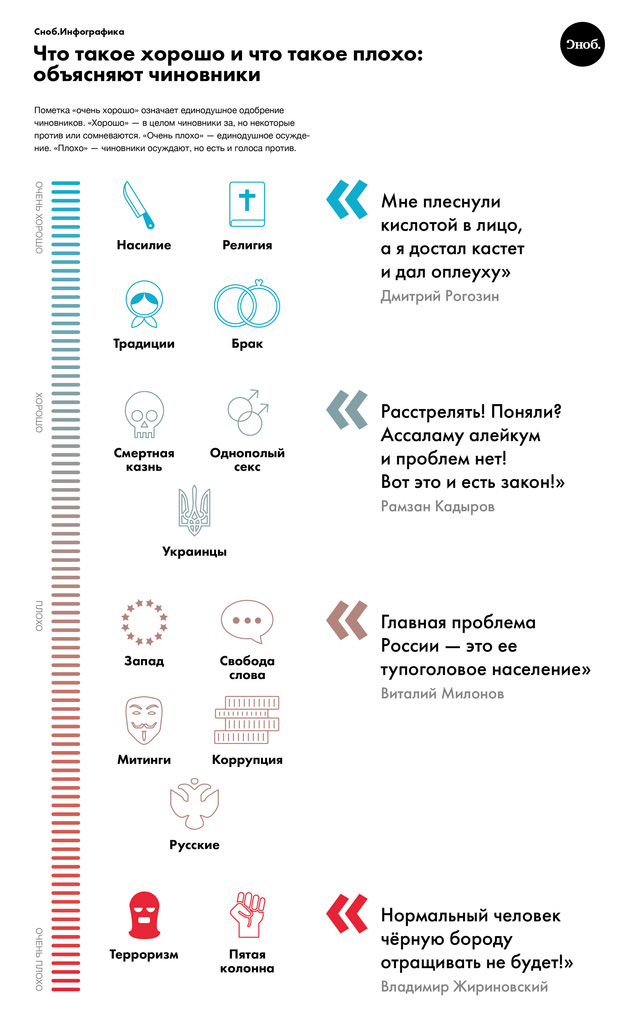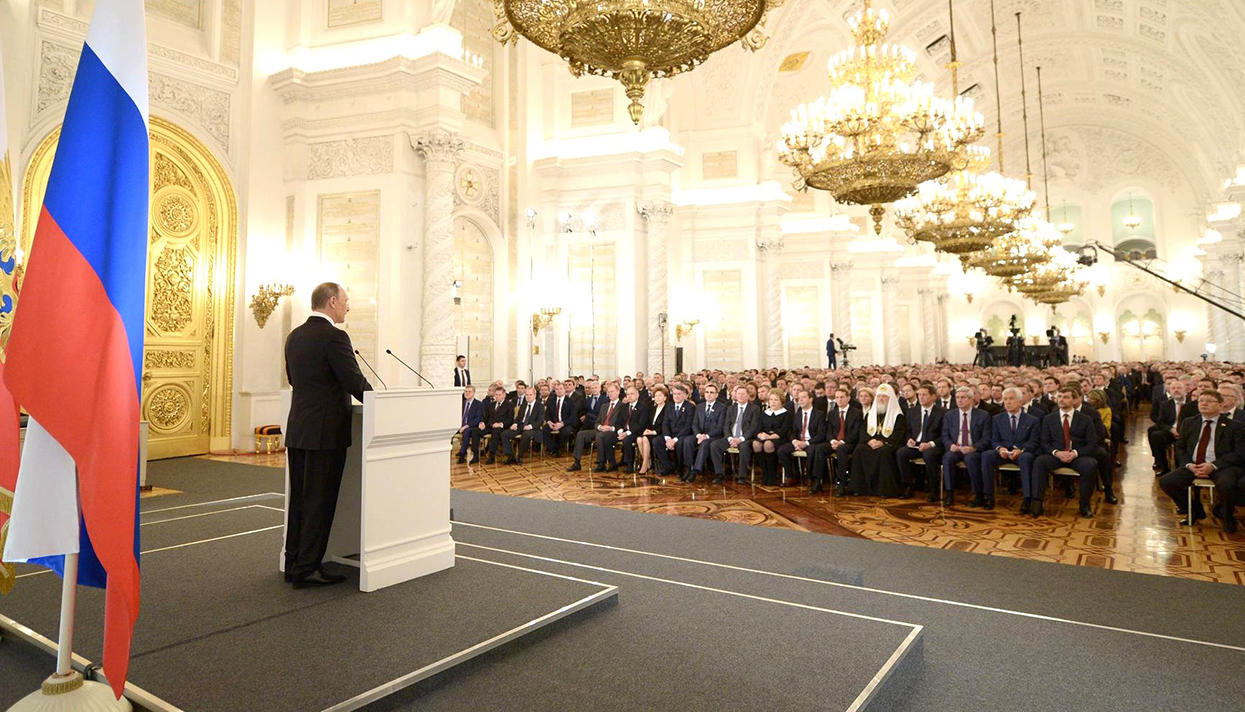One of the most important and influential books about the Soviet leadership was Nathan Leites’ The Operational Code of the Politburo (New York: McGraw-Hill, 1951; a free PDF download available here).
His study traced the ideas that drove the leadership of the Soviet Union to take this or that action and was based on a careful study of what those leaders had said and done in particular cases, something that Leites generalized to provide guidance as to what the Soviet ruling elite would be likely to do in the future.
Now, the Snob portal has examined “hundreds” of statements by members of the Putin elite and compiled what it calls “the moral compass of the Russian bureaucrat
” of today. It has now presented its findings with only the caveat that there is as yet no unanimity in views on any of these points.
In each case, the portal provides hypertext-linked quotations from Vladimir Putin as well as key members of the government and federal legislature. Some of the findings are unexpected, but many are disturbing. And while they do not provide the kind of authoritative guidance that Leites’ work did, they are suggestive.

Snob’s 14 points of the values system of Russian officialdom at the present time are as follows:
- “Violence is very good.”
- “Religion is very good.”
- “Traditions are very good.”
- “Marriage is very good.”
- “The death penalty is good.”
- “Single-sex marriage is good.”
- “Ukrainians are between good and bad.”
- “The fifth column is very bad.”
- “Terrorism is very bad.”
- “The West is bad.”
- “Freedom of speech is bad.”
- “Meetings are bad.”
- “Corruption is bad.”
- And last but perhaps not least, “ethnic Russians are bad.”
Related:
- Russian 'Maxim' identifies 16 varieties of Russian patriots
- Russian journalist Valeriy Solovey: What Russians don't like about Ukrainians
- Ten books Putin loyalists should burn -- according to Russian 'Maxim' magazine
- Why Americans are "stupid," according to Russians
- How Russians see Ukraine's independence
- Putin elite's anti-Americanism older and more deeply held than that of other Russians (study)



